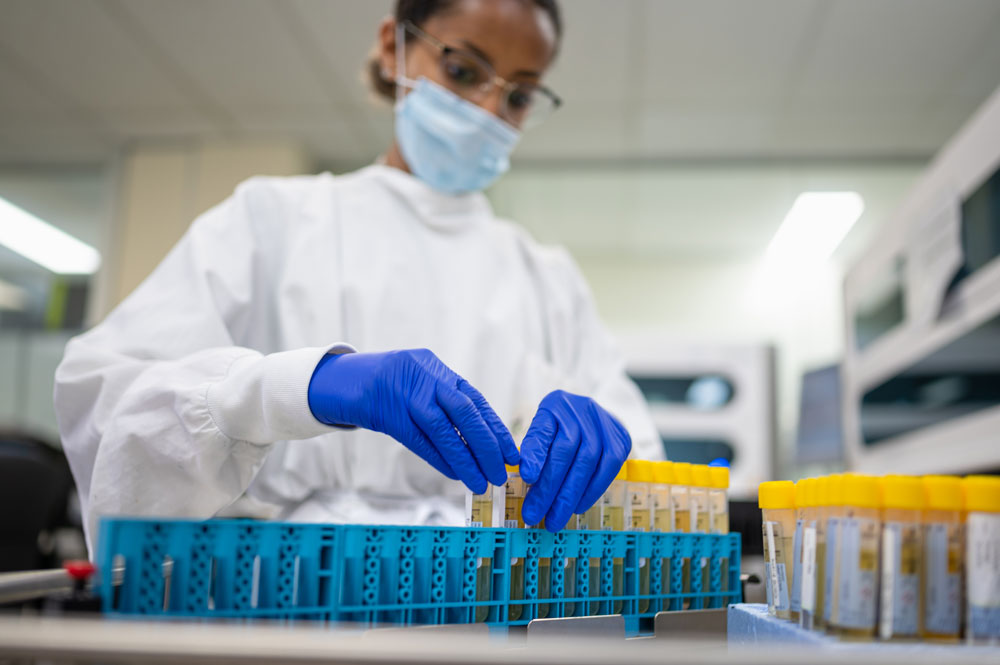What is a pathology test?
A pathology test is the testing of bodily tissues or fluids such as blood, urine, or faeces to determine the presence of a disease or to investigate it further. Pathology is the study of disease, including its causes and progression.
When you are sick or need to be screened for an illness, the results of your pathology tests will usually be used to diagnose a health condition and decide your treatment plan, or to let you know that no disease is present. While your healthcare provider will take care of this process for you, you may want to understand what to expect and why you need the test.
There are many reasons to have a pathology test, including but not limited to, treating or monitoring disease, preventing diseases, assessing the risk of developing a disease and aiding medical research. If you have been ordered to have a pathology test by your doctor, it is usually for one of these reasons.
Processing pathology tests involves a range of professionals who help inform healthcare practitioners to make the best choices for their patients every day. These include pathologists, laboratory managers, technicians and assistants, medical scientists, phlebotomists who collect the pathology samples, and couriers who transport the samples.
WHAT ARE THE MOST COMMON TESTS DONE IN PATHOLOGY?
There are a great variety of pathology tests that can be ordered by your GP or doctor, including blood, urine, faeces, and bodily tissue tests. These detect a range of disease and health conditions. Some of the more common pathology tests you may come across are:
- Iron studies
- Urinalysis
- INR (International Normalized Ratio)
- Tissue biopsy

DIFFERENT KINDS OF PATHOLOGY TESTS
However, not all pathology tests are carried out with the end goal of investigating existing disease or finding the cause of new symptoms. Some tests may be regular screening tests which form parts of national screening programs, such as the National Bowel Cancer Screening Program or the National Cervical Screening Program in Australia.
These programs work to conduct pathology tests regularly in order to ensure disease is picked up in its early stages in asymptomatic people. This means that it can be treated earlier, and have better health outcomes for patients.
Why do I need to have a blood test?
A blood test may be ordered for a number of reasons by your doctor. For example, a screening test may be offered to you if you have reached an age where you are more at risk of disease. If you have symptoms, your doctor might order a blood test to find out the cause. Even a negative or normal test result can help your doctor by ruling out some conditions and guiding further investigation of your symptoms.
A good example of this is a full blood count, which is a common test that is ordered to assess you for a wide range of illnesses, infections, and diseases. The test will give your doctor information about the number and condition of cells in your blood that fluctuate with your immune response, such as red blood cells, white blood cells and platelets.
Abnormalities in the concentration of these cells can indicate conditions such as anaemia, infections, or blood cancers.
It is important to make sure you have the pathology tests that your doctor has advised but if you are unsure why tests are needed, you can always ask your doctor to explain what the test is for.
Can I get my pathology results online?
You may be able to access your pathology results online, but only after your GP has discussed them with you.
How you receive your test results will depend on the type of test you are having, your pathology provider and the protocols of the healthcare professional referring you for the test.
In most cases, your doctor will be the first to receive your pathology test results, and they will then be able to go through them with you in detail to explain what your results mean for you and your health.
My Health Record is the national digital health record platform for Australia. If you have registered with the platform, you will be able to access your pathology results online seven days after your doctor unless you have specified otherwise.
